Deprecated: Return type of ElementRepeatable::count() should either be compatible with Countable::count(): int, or the #[\ReturnTypeWillChange] attribute should be used to temporarily suppress the notice in /home/pablo/www/media/zoo/elements/repeatable/repeatable.php on line 353
Deprecated: Return type of ElementRepeatable::seek($position) should either be compatible with SeekableIterator::seek(int $offset): void, or the #[\ReturnTypeWillChange] attribute should be used to temporarily suppress the notice in /home/pablo/www/media/zoo/elements/repeatable/repeatable.php on line 360
Deprecated: Return type of ElementRepeatable::current() should either be compatible with Iterator::current(): mixed, or the #[\ReturnTypeWillChange] attribute should be used to temporarily suppress the notice in /home/pablo/www/media/zoo/elements/repeatable/repeatable.php on line 325
Deprecated: Return type of ElementRepeatable::next() should either be compatible with Iterator::next(): void, or the #[\ReturnTypeWillChange] attribute should be used to temporarily suppress the notice in /home/pablo/www/media/zoo/elements/repeatable/repeatable.php on line 329
Deprecated: Return type of ElementRepeatable::key() should either be compatible with Iterator::key(): mixed, or the #[\ReturnTypeWillChange] attribute should be used to temporarily suppress the notice in /home/pablo/www/media/zoo/elements/repeatable/repeatable.php on line 333
Deprecated: Return type of ElementRepeatable::valid() should either be compatible with Iterator::valid(): bool, or the #[\ReturnTypeWillChange] attribute should be used to temporarily suppress the notice in /home/pablo/www/media/zoo/elements/repeatable/repeatable.php on line 337
Deprecated: Return type of ElementRepeatable::rewind() should either be compatible with Iterator::rewind(): void, or the #[\ReturnTypeWillChange] attribute should be used to temporarily suppress the notice in /home/pablo/www/media/zoo/elements/repeatable/repeatable.php on line 345
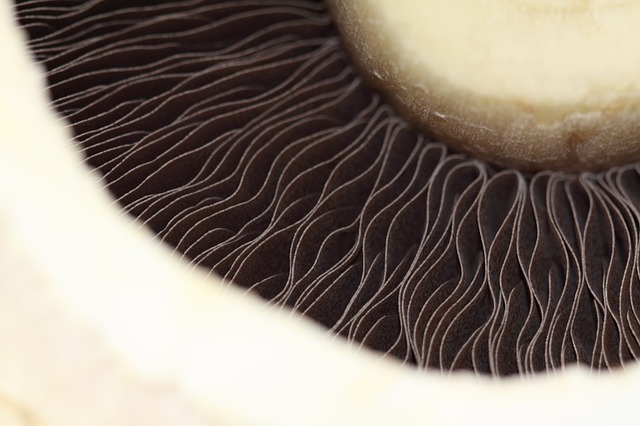
Deprecated: Optional parameter $view declared before required parameter $params is implicitly treated as a required parameter in /home/pablo/www/components/com_jem/classes/output.class.php on line 848
Deprecated: Creation of dynamic property Joomla\CMS\Object\CMSObject::$filter.state is deprecated in /home/pablo/www/libraries/src/Object/CMSObject.php on line 197
Deprecated: Creation of dynamic property Joomla\CMS\Object\CMSObject::$list.limit is deprecated in /home/pablo/www/libraries/src/Object/CMSObject.php on line 197
Deprecated: Creation of dynamic property Joomla\CMS\Object\CMSObject::$filter.context is deprecated in /home/pablo/www/libraries/src/Object/CMSObject.php on line 197
Deprecated: Creation of dynamic property Joomla\CMS\Object\CMSObject::$filter.assigned_cat_ids is deprecated in /home/pablo/www/libraries/src/Object/CMSObject.php on line 197
Deprecated: Return type of YOOtheme\Widgetkit\Content\Content::offsetExists($key) should either be compatible with ArrayAccess::offsetExists(mixed $offset): bool, or the #[\ReturnTypeWillChange] attribute should be used to temporarily suppress the notice in /home/pablo/www/administrator/components/com_widgetkit/src/Content/Content.php on line 119
Deprecated: Return type of YOOtheme\Widgetkit\Content\Content::offsetGet($key) should either be compatible with ArrayAccess::offsetGet(mixed $offset): mixed, or the #[\ReturnTypeWillChange] attribute should be used to temporarily suppress the notice in /home/pablo/www/administrator/components/com_widgetkit/src/Content/Content.php on line 132
Deprecated: Return type of YOOtheme\Widgetkit\Content\Content::offsetSet($key, $value) should either be compatible with ArrayAccess::offsetSet(mixed $offset, mixed $value): void, or the #[\ReturnTypeWillChange] attribute should be used to temporarily suppress the notice in /home/pablo/www/administrator/components/com_widgetkit/src/Content/Content.php on line 145
Deprecated: Return type of YOOtheme\Widgetkit\Content\Content::offsetUnset($key) should either be compatible with ArrayAccess::offsetUnset(mixed $offset): void, or the #[\ReturnTypeWillChange] attribute should be used to temporarily suppress the notice in /home/pablo/www/administrator/components/com_widgetkit/src/Content/Content.php on line 157
Deprecated: Return type of YOOtheme\Widgetkit\Content\Item::offsetExists($key) should either be compatible with ArrayAccess::offsetExists(mixed $offset): bool, or the #[\ReturnTypeWillChange] attribute should be used to temporarily suppress the notice in /home/pablo/www/administrator/components/com_widgetkit/src/Content/Item.php on line 254
Deprecated: Return type of YOOtheme\Widgetkit\Content\Item::offsetGet($key) should either be compatible with ArrayAccess::offsetGet(mixed $offset): mixed, or the #[\ReturnTypeWillChange] attribute should be used to temporarily suppress the notice in /home/pablo/www/administrator/components/com_widgetkit/src/Content/Item.php on line 265
Deprecated: Return type of YOOtheme\Widgetkit\Content\Item::offsetSet($key, $value) should either be compatible with ArrayAccess::offsetSet(mixed $offset, mixed $value): void, or the #[\ReturnTypeWillChange] attribute should be used to temporarily suppress the notice in /home/pablo/www/administrator/components/com_widgetkit/src/Content/Item.php on line 276
Deprecated: Return type of YOOtheme\Widgetkit\Content\Item::offsetUnset($key) should either be compatible with ArrayAccess::offsetUnset(mixed $offset): void, or the #[\ReturnTypeWillChange] attribute should be used to temporarily suppress the notice in /home/pablo/www/administrator/components/com_widgetkit/src/Content/Item.php on line 286
Deprecated: Return type of YOOtheme\Widgetkit\Content\Item::getIterator() should either be compatible with IteratorAggregate::getIterator(): Traversable, or the #[\ReturnTypeWillChange] attribute should be used to temporarily suppress the notice in /home/pablo/www/administrator/components/com_widgetkit/src/Content/Item.php on line 296
Among the Kingdoms of Living Things, the Fungi kingdom includes the yeasts, molds, mildews, mushrooms, and other similar organisms.
Mushrooms = Super Food
A mushroom is the fleshy, spore-bearing fruiting body (sporocarp or reproductive structure) of a fungus, typically produced above ground on soil or on its food source. The term "mushroom" also is used to designate the entire fungus with a fruiting body. People have been eating them since prehistoric times.
But how can eating mushrooms help you live longer and healthier in the 21st century?
Culinary Mushrooms Are Nutritious
Well, for one thing the edible varieties can add unique flavor and meaty texture to any meal. Mushrooms are a low-carb, practically no-fat food with very few calories, and a significant amount of dietary fiber, protein, amino acids, vitamins (including B1, B2, B12, C, D and E) and trace minerals such as potassium, phosphorus, selenium, and iron.
Deprecated: htmlspecialchars(): Passing null to parameter #2 ($flags) of type int is deprecated in /home/pablo/www/administrator/components/com_widgetkit/src/Content/Item.php on line 240
Deprecated: htmlspecialchars(): Passing null to parameter #2 ($flags) of type int is deprecated in /home/pablo/www/administrator/components/com_widgetkit/src/Content/Item.php on line 240
Deprecated: htmlspecialchars(): Passing null to parameter #2 ($flags) of type int is deprecated in /home/pablo/www/administrator/components/com_widgetkit/src/Content/Item.php on line 240
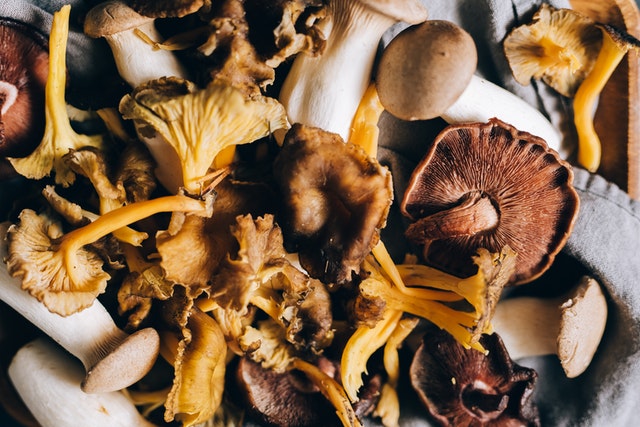
Mushrooms Provide Protein
Deprecated: htmlspecialchars(): Passing null to parameter #2 ($flags) of type int is deprecated in /home/pablo/www/administrator/components/com_widgetkit/src/Content/Item.php on line 240
Deprecated: htmlspecialchars(): Passing null to parameter #2 ($flags) of type int is deprecated in /home/pablo/www/administrator/components/com_widgetkit/src/Content/Item.php on line 240
Deprecated: htmlspecialchars(): Passing null to parameter #2 ($flags) of type int is deprecated in /home/pablo/www/administrator/components/com_widgetkit/src/Content/Item.php on line 240

Mushrooms Provide Fiber
Deprecated: htmlspecialchars(): Passing null to parameter #2 ($flags) of type int is deprecated in /home/pablo/www/administrator/components/com_widgetkit/src/Content/Item.php on line 240
Deprecated: htmlspecialchars(): Passing null to parameter #2 ($flags) of type int is deprecated in /home/pablo/www/administrator/components/com_widgetkit/src/Content/Item.php on line 240
Deprecated: htmlspecialchars(): Passing null to parameter #2 ($flags) of type int is deprecated in /home/pablo/www/administrator/components/com_widgetkit/src/Content/Item.php on line 240
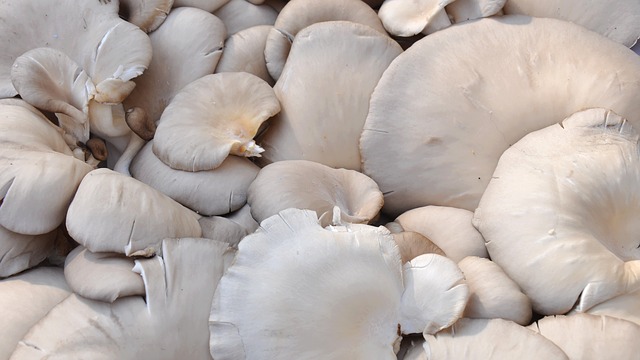
Mushrooms Provide Vitamins
Deprecated: htmlspecialchars(): Passing null to parameter #2 ($flags) of type int is deprecated in /home/pablo/www/administrator/components/com_widgetkit/src/Content/Item.php on line 240
Deprecated: htmlspecialchars(): Passing null to parameter #2 ($flags) of type int is deprecated in /home/pablo/www/administrator/components/com_widgetkit/src/Content/Item.php on line 240
Deprecated: htmlspecialchars(): Passing null to parameter #2 ($flags) of type int is deprecated in /home/pablo/www/administrator/components/com_widgetkit/src/Content/Item.php on line 240
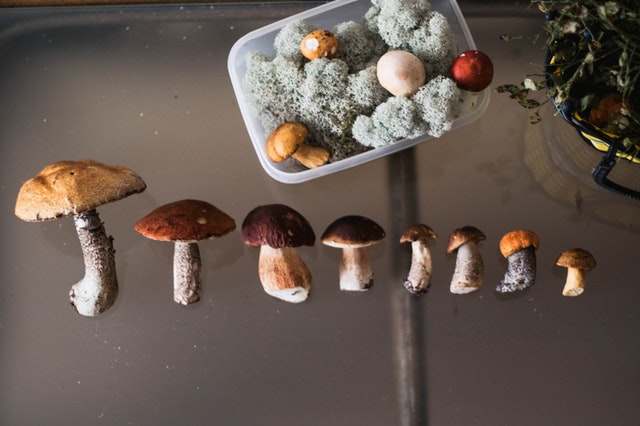
Mushrooms Provide Antioxidants
Deprecated: htmlspecialchars(): Passing null to parameter #2 ($flags) of type int is deprecated in /home/pablo/www/administrator/components/com_widgetkit/src/Content/Item.php on line 240
Deprecated: htmlspecialchars(): Passing null to parameter #2 ($flags) of type int is deprecated in /home/pablo/www/administrator/components/com_widgetkit/src/Content/Item.php on line 240
Deprecated: htmlspecialchars(): Passing null to parameter #2 ($flags) of type int is deprecated in /home/pablo/www/administrator/components/com_widgetkit/src/Content/Item.php on line 240
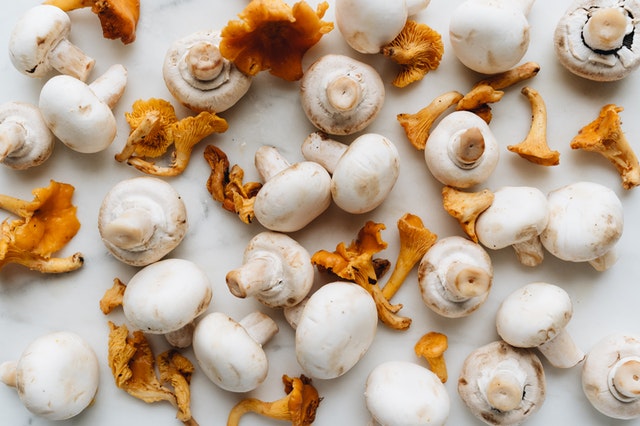
Mushrooms Provide Heart Health
Deprecated: htmlspecialchars(): Passing null to parameter #2 ($flags) of type int is deprecated in /home/pablo/www/administrator/components/com_widgetkit/src/Content/Item.php on line 240
Deprecated: htmlspecialchars(): Passing null to parameter #2 ($flags) of type int is deprecated in /home/pablo/www/administrator/components/com_widgetkit/src/Content/Item.php on line 240
Deprecated: htmlspecialchars(): Passing null to parameter #2 ($flags) of type int is deprecated in /home/pablo/www/administrator/components/com_widgetkit/src/Content/Item.php on line 240
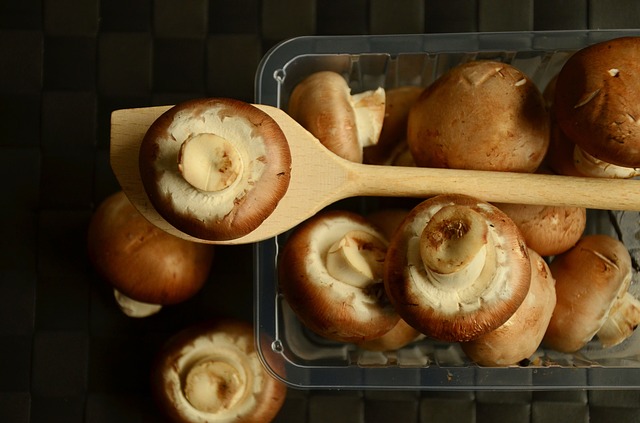
Mushrooms Provide Improved Immune System
If you’re a timid eater, reluctant to try something new, a great starting point before trying more exotic mushrooms, is to use criminis and portobello varieties, which are close cousins to the basic button mushroom. They offer the same immunity-boosting and slimming perks, but have a more “mushroomy” flavor.
Medicinal MushroomS Are Healthy
Another thing is that consuming mushrooms can lower the risk of common health hassles.
Deprecated: htmlspecialchars(): Passing null to parameter #2 ($flags) of type int is deprecated in /home/pablo/www/administrator/components/com_widgetkit/src/Content/Item.php on line 240
Deprecated: htmlspecialchars(): Passing null to parameter #2 ($flags) of type int is deprecated in /home/pablo/www/administrator/components/com_widgetkit/src/Content/Item.php on line 240
Deprecated: htmlspecialchars(): Passing null to parameter #2 ($flags) of type int is deprecated in /home/pablo/www/administrator/components/com_widgetkit/src/Content/Item.php on line 240
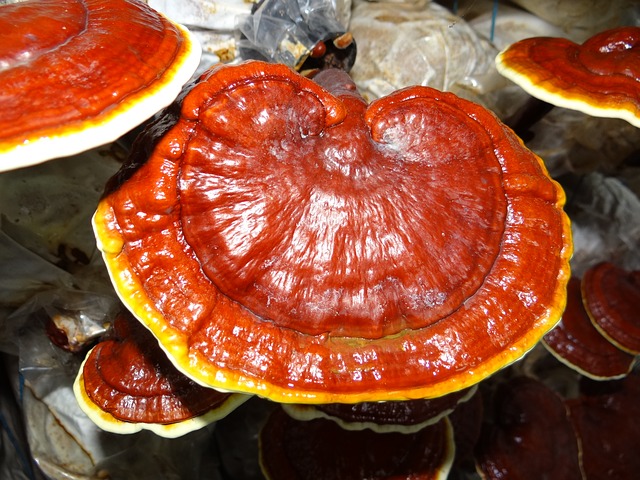
Reishi (Lingzhi)
Deprecated: htmlspecialchars(): Passing null to parameter #2 ($flags) of type int is deprecated in /home/pablo/www/administrator/components/com_widgetkit/src/Content/Item.php on line 240
Deprecated: htmlspecialchars(): Passing null to parameter #2 ($flags) of type int is deprecated in /home/pablo/www/administrator/components/com_widgetkit/src/Content/Item.php on line 240
Deprecated: htmlspecialchars(): Passing null to parameter #2 ($flags) of type int is deprecated in /home/pablo/www/administrator/components/com_widgetkit/src/Content/Item.php on line 240
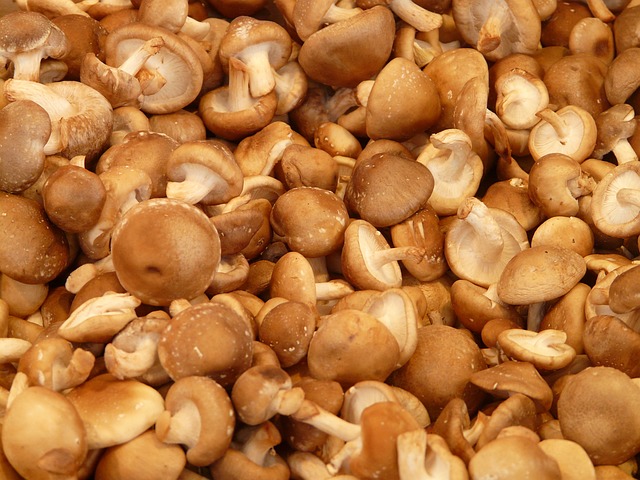
Shiitakes help protect your joints
The credit goes to their lentinan, a long-chain sugar molecule that nourishes joint tissue. These flavorful mushrooms also contain a substance called eritadenine, which encourages body tissues to absorb cholesterol and lower the amount circulating in the blood. Shiitakes have antiviral and anticancer effects. Dried shiitakes, available at Asian grocery stores, are also effective. Fresh ones are readily available thanks to domestic cultivation. (To prepare, remove stems or slice fresh ones thinly; they are often tough.Enjoying 3 cups weekly of these woodsy-tasting, extra-meaty mushrooms could cut joint inflammation and pain 38% in six weeks. (Oklahoma State research)
Deprecated: htmlspecialchars(): Passing null to parameter #2 ($flags) of type int is deprecated in /home/pablo/www/administrator/components/com_widgetkit/src/Content/Item.php on line 240
Deprecated: htmlspecialchars(): Passing null to parameter #2 ($flags) of type int is deprecated in /home/pablo/www/administrator/components/com_widgetkit/src/Content/Item.php on line 240
Deprecated: htmlspecialchars(): Passing null to parameter #2 ($flags) of type int is deprecated in /home/pablo/www/administrator/components/com_widgetkit/src/Content/Item.php on line 240
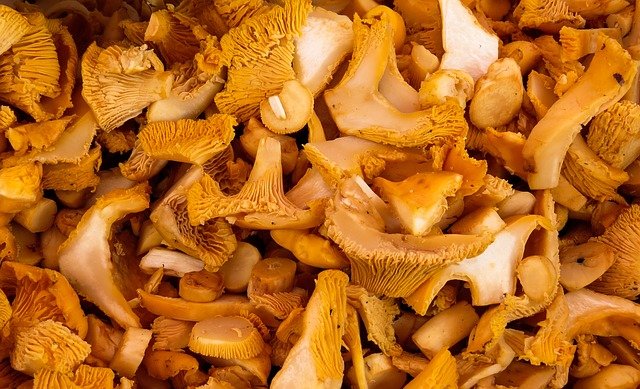
Chanterelles support better bone health
Unlike farmed mushrooms or field fungi, chanterelles are mycorrhizal and need a host tree or shrub to grow. They grow in the soil next to trees and shrubs, not on the plants themselves.
Chanterelle mushrooms are best known for being rich in vitamin D. Many commercially grown mushrooms don't contain much vitamin D because they're grown in dark, indoor environments.
Wild-harvested mushrooms like chanterelle, morel, and maitake naturally contain high amounts of vitamin D thanks to their natural habitats. In fact, half a cup of chanterelles can have anywhere from 5 to 20 micrograms of vitamin D. This works out to about 30 to 100 percent of your daily recommended intake.
Deprecated: htmlspecialchars(): Passing null to parameter #2 ($flags) of type int is deprecated in /home/pablo/www/administrator/components/com_widgetkit/src/Content/Item.php on line 240
Deprecated: htmlspecialchars(): Passing null to parameter #2 ($flags) of type int is deprecated in /home/pablo/www/administrator/components/com_widgetkit/src/Content/Item.php on line 240
Deprecated: htmlspecialchars(): Passing null to parameter #2 ($flags) of type int is deprecated in /home/pablo/www/administrator/components/com_widgetkit/src/Content/Item.php on line 240
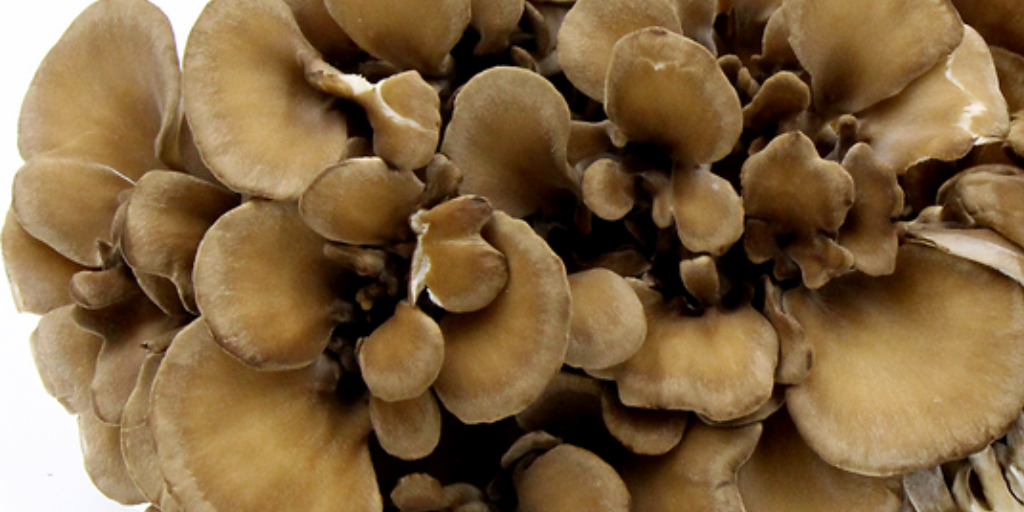
Maitakes
Adding a few slices of maitakes to your daily diet can help steady your blood sugar in 1 week. (Georgetown University study)
Compounds in the maitake mushrooms called beta-glucans prod your muscles to burn glucose for fuel. Maitakes can be treated just like buttons, but they have a stronger, earthier flavor so you won’t need as much to get a hearty hit of flavor.
The maitake mushroom (Grifola frondosa), also known as “sheep’s head” or “hen of the woods,” is a polypore that grows at the bases of oak trees. In addition to its culinary versatility, the maitake mushroom has been researched extensively for its nutritional and medicinal effects.
Let’s take a look at the research:
Vitamin D
All mushrooms contain a fungal cell membrane molecule known as ergosterol. Upon UV exposure, this compound is converted into ergocalciferol, or vitamin D2. Some mushrooms contain more vitamin D2 than others depending on the species, environmental conditions, and post-harvest treatment. Maitake mushrooms, at 100 grams of fresh material, have been shown to contain more than 2,000 IU of vitamin D2 when exposed to supplementary UV treatment [1].
To increase the vitamin D2 content of your mushrooms, place them gills-side-up under direct sunlight. Sliced mushrooms will yield even more vitamin D2, as this method increases surface area and allows more ergosterol to be exposed to sunlight [2].
Cancer
There is ample research suggesting that maitake mushrooms may play a role in the protection against various cancers, with one key compound gaining most of the attention. Known as D-Fraction, this polysaccharide has the ability to enhance certain immune system cells, such as macrophages, helper T cells, and cytotoxic T cells, which all work together to attack tumor cells.
In one clinical trial, D-Fraction was administered to cancer patients without the combined use of conventional therapies. As a result, metastatic tumor growth slowed down, tumor lab markers decreased, and natural killer cell activity increased (natural killer cells are immune system cells that play a role in inducing tumor cell death). These results were witnessed in all patients [3].
Other studies have shown that D-Fraction can induce cellular death (a process known as apoptosis) in human breast cancer cells and advanced renal-cell carcinoma cells [4, 5, 6]. Additionally, D-Fraction has been shown to reduce bladder cancer cell growth and has been linked to bladder cancer disease remission [7, 8].
Immune system
For many of the same reasons that maitake may help protect against cancer, it also plays a critical role in supporting immune system health. Maitake contains important polysaccharides which, as mentioned previously, help to enhance the activity of certain immune system cells, such as T cells, B cells, macrophages, and natural killer cells. Ultimately, polysaccharides from the maitake mushroom act as immune system regulators [9].
Additionally, many medicinal mushrooms are known for their immunomodulatory effects, and maitake is no exception [10]. Immunomodulation is the process of enhancing, stabilizing, or depressing the immune system depending on circumstances. For example, stimulating the immune system is necessary in instances of viral or bacterial infection. Depressing the immune system may be desirable when experiencing the effects of autoimmune diseases. Beta-glucans from maitake mushrooms have been shown to play a key role in the immunomodulatory process [11].
Antioxidants
Oxidation is a natural process in the human body that, if left unchecked, can result in conditions such as atherosclerosis, diabetes, and Alzheimer’s disease (just to name a few). Antioxidants combat the process of oxidation, and can be produced internally as well as provided externally through the consumption of antioxidant-rich foods.
A hot-water extraction of maitake mushroom has been shown to exhibit anti-angiogenic activity through its antioxidant actions against free radicals (molecules that can lead to the oxidation cascade). Angiogenesis is the process whereby new blood vessels are formed from the preexisting vascular system. While this is a normal part of the wound healing process, angiogenesis is also involved in tumor progression from the benign to malignant state. Administration of maitake mushroom, therefore, may be a unique approach to combating angiogenesis [12].
Antioxidants isolated from maitake mushroom have been shown to be effective against other reactive molecules found in our bodies, including the hydroxyl radical and the superoxide radical [13]. These molecules may play a critical role in several diseases, such as hypertension, cardiovascular disease, and myocardial infarction. Consumption of maitake mushroom with its naturally occurring antioxidants, including its phenols, flavonoids, ascorbic acid, and α-tocopherol may be a wise strategy in protecting the body against diseases associated with oxidation [14].
Diabetes
Maitake mushroom extracts have been shown to demonstrate protection against diabetes in several studies. For example, research has looked at the ability of maitake mushroom extracts to inhibit alpha-glucosidase, an enzyme that breaks down starch and simple sugars to glucose [15]. By inhibiting this enzyme, glucose absorption slows down in the body. Not surprisingly, many oral anti-diabetic drugs are alpha-glucosidase inhibitors. Because the maitake mushroom naturally contains alpha-glucosidase inhibitors, this information may be of importance for individuals seeking to bypass conventional diabetic medications, which usually present a host of unwanted side effects like severe stomach pain, constipation, diarrhea, and jaundice.
Mushrooms are truly a superfood, not only for their edible value, but additionally for their powerful medicinal properties.
These statements have not been evaluated by the Food and Drug Administration.
Referenced Articles:
- Vitamin D in Mushrooms
- Place Mushrooms in Sunlight to Get Your Vitamin D
- Effect of Maitake (Grifola frondosa) D-Fraction on the Activation of NK Cells in Cancer Patients
- Maitake (D fraction) mushroom extract induces apoptosis in breast cancer cells by BAK-1 gene activation
- Alternative therapeutic approach to renal-cell carcinoma: induction of apoptosis with combination of vitamin K3 and D-fraction
- Induction of cell death in renal cell carcinoma with combination of D-fraction and vitamin C
- Synergistic potentiation of interferon activity with maitake mushroom d-fraction on bladder cancer cells
- Possible disease remission in patient with invasive bladder cancer with D-fraction regimen
- Protective effect of polysaccharides on simulated microgravity-induced functional inhibition of human NK cells
- Immunomodulatory activities of medicinal mushroom Grifola frondosa extract and its bioactive constituent
- Immunomodulating activities of cultivated maitake medicinal mushroom Grifola frondosa (Dicks.: Fr.) S.F. Gray (higher Basidiomycetes) on peripheral blood mononuclear cells
- Grifola frondosa (maitake mushroom) water extract inhibits vascular endothelial growth factor-induced angiogenesis through inhibition of reactive oxygen species and extracellular signal-regulated kinase phosphorylation
- Isolation, purification and antioxidant activities of polysaccharides from Grifola frondosa
- Antioxidant properties and antioxidant compounds of various extracts from the edible basidiomycete Grifola frondosa (Maitake)
- Inhibitory potential of Grifola frondosa bioactive fractions on α-amylase and α-glucosidase for management of hyperglycemia
Warning: Cannot modify header information - headers already sent by (output started at /home/pablo/www/plugins/system/zlframework/zlframework/helpers/zlfw.php:997) in /home/pablo/www/libraries/src/Input/Cookie.php on line 100
Warning: Cannot modify header information - headers already sent by (output started at /home/pablo/www/plugins/system/zlframework/zlframework/helpers/zlfw.php:997) in /home/pablo/www/libraries/src/Input/Cookie.php on line 100
Deprecated: Creation of dynamic property Comment::$name is deprecated in /home/pablo/www/administrator/components/com_zoo/helpers/tree.php on line 33
Deprecated: Creation of dynamic property Comment::$alias is deprecated in /home/pablo/www/administrator/components/com_zoo/helpers/tree.php on line 34







